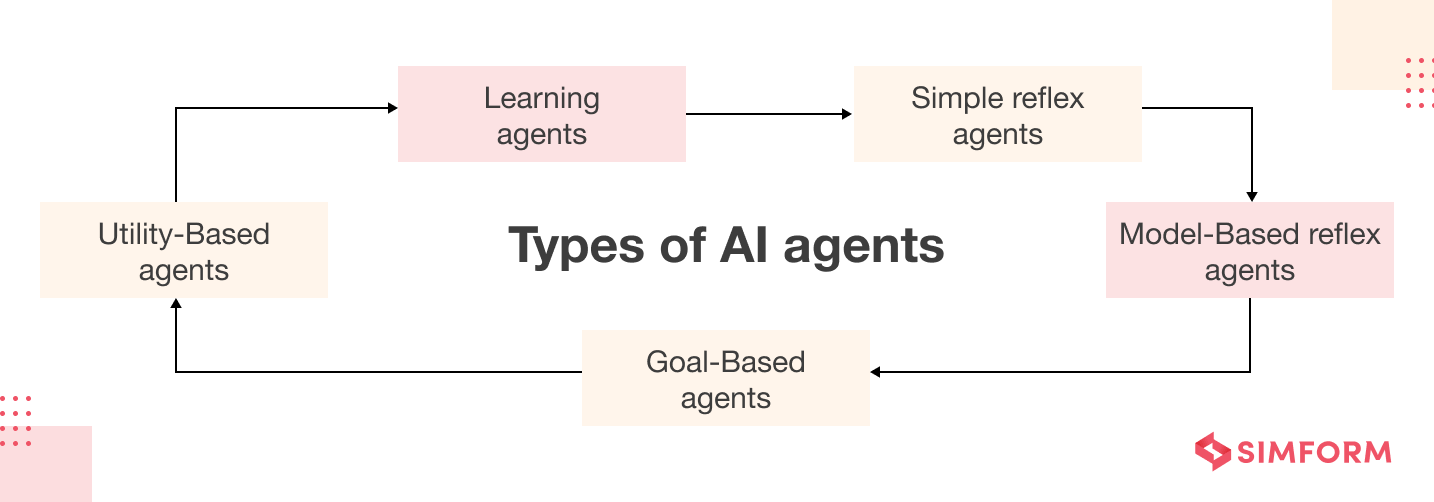Pro Suggestions To Deciding On An AI Agent Site For Business
Pro Suggestions To Deciding On An AI Agent Site For Business
Blog Article
10 Ways Businesses Can Use Ai Agents To Enhance The Accounts Receivable (Ar) Of Their Financial Operations
These 10 AI-assisted operations in finance can improve the performance of accounts payable (AR) by companies.
1. Automated bill generation and delivery
AI agents speed up invoicing through:
Create invoices on a computer using contracts, orders or milestones that you have completed.
The delivery of invoices is done via preferred channels for customers, like email.
2. Intelligent Payment Reminders
AI enhances collection efforts by:
Reminding customers to pay in response to the behavior of the client.
Increase the probability of being on time with your payments by carefully timing reminders.
3. Predictive Payment Analysis
AI analyzes customer data to:
Predict when the client is likely to pay.
Accounts that are flagged as being at risk of late payments to ensure prompt follow-up.
4. Real-Time Credit Risk Assessment
AI lowers credit risk through:
Assessing creditworthiness for customers in real time.
The credit limits and terms for payment are suggested on the basis of your financial situation.
5. Automated Cash Application
AI speeds up the processing of payments by:
Even with discrepancies, matching payments to invoices is an automatic process.
Reduce the amount of manual work to reconcile.
6. Amplification of dispute resolution
AI aids in quick resolution of AR disputes through:
Recognizing discrepancies in invoices or in payments.
Automating the collection of documents that support it to speed resolution.
7. Dynamic Aging Reports
AI gives useful AR information derived from:
Reporting in real-time on overdue invoices in real-time.
Highlighting collections that are of top priority for the AR team.
8. Strategies for dunning that are optimized
AI customizes follow-up processes by:
Implementing tiered escalation in overdue accounts.
Adjusting tone and frequency of communication according to response patterns.
9. Fraud Detection in Payments
AI identifies anomalies using:
Monitoring for unusual behavior in payments, including overpayments and suspicious account activity.
The flagging of possible frauds for further investigation.
10. Integration with Financial Systems
AI enables seamless data flow through:
Synchronizing AR Data with ERP CRM and Accounting Software
One source of information for account balances and customer payments.
AI agents automatize and improve AR processes, allowing businesses to increase their cash flow and decrease operational expenses. This helps improve the financial health of an enterprise. Check out the expert AI agent for Data Privacy Compliance for site recommendations including AI agent for nps collection, AI agent for supplier performance tracking, AI agent for talent acquisition, AI agent for technical support, AI agent for vendor management, AI agent for investment strategy, AI agent for payment scheduling, AI agent for blog topic generation, AI agent for contract compliance, AI agent for quality monitoring and more.
Ai Agents Can Be Used By Businesses To Identify Fraud And Manage Risk.
AI agents are a great method to reduce the financial risk and identify fraud.
1. Monitoring of transactions in real-time
Artificial intelligence (AI) agents can detect fraudulent activity in:
Continuously monitoring financial transactions in real-time.
Make sure to mark transactions that are out of the ordinary such as large transactions, transactions with rapid timing, or unusual payments.
2. Anomaly Detected
AI can help identify abnormal behavior through:
Utilizing machine-learning algorithms to analyse historical transaction data to identify abnormalities.
Recognizing patterns of fraud, such as failed payments, sudden increases in spending or repeated inability to pay.
3. Predictive Risk Assessment
AI can identify the risks that lie ahead.
Analyzing data from the past to assess the likelihood that certain risky financial transactions or fraud are likely to take place.
Reporting transactions or accounts that fit high-risk profile, based on past incidents.
4. Biometrics that are based on the behavior of individuals
AI agents are able to examine user behaviour in many different ways.
The monitoring of how users interact with financial platforms.
It is essential to identify any irregular or unusual behavior that could be a sign of identity theft, or improper access.
5. Automated Alerts in case of Suspicious Behavior
AI sends immediate alerts via:
Notifying the risk manager or compliance officer if suspicious activity is detected.
Triggering automated workflows for account lockouts or fraud investigations.
6. Credit Scoring and Fraud Risk
AI helps in assessing a customer's creditworthiness:
Studying the history of financial transactions and conduct of clients to anticipate fraud or defaults.
Businesses can manage risks in terms of lending and payment by offering flexible credit scores. These scores are modified based on real-time activities.
7. Natural Language Processing (NLP) for Document Fraud Detection
AI can recognize copyright documents using:
It is important to scan invoices, contracts, financial documents, as well as other documents related to them to check for any irregularities, alterations data or forged signs.
NLP algorithms detects contradictions between text and its context. This could be a sign of fraud.
8. Screening vendors and customers
AI helps prevent fraud
Background checks can be conducted on customers and vendors using AI-driven analysis based on public documents, financial histories and social media profiles.
Entities with high risk that are flagged for a closer review before making any transactions or signing contracts.
9. Monitoring Compliance
AI ensures compliance with the law by:
Continuously checking financial operations against compliance and regulations.
Automating reports, audits, and other types of reporting to ensure compliance with law and to help businesses identify and avoid financial misdeeds.
10. Machine Learning to Improve Continuous Fraud Detection and Improvement
AI agents are becoming more intelligent with time.
Machine learning is a method to adapt and evolve new fraud strategies and tactics.
Continuously training on new data to refine fraud detection methods and reduce false positives.
By integrating AI in fraud detection businesses can safeguard their assets, ensure compliance, and increase efficiency. Read the recommended AI agent for Payroll Processing for website info including AI agent for tax reporting, AI agent for expense management, AI agent for purchase order compliance, AI agent for chargeback handling, AI agent for learning and development, AI agent for help desk support, AI agent for ticket resolution, AI agent for nps collection, AI agent for product review requests, AI agent for hardware asset management and more.
10 Ways Businesses Can Use Ai Agents To Adhere To Compliance And Regulations
Here are 10 ways that businesses could benefit from AI agents to ensure compliance and regulations in the financial sector:
1. Automating the Reporting of Regulatory Information
AI agents can improve reporting by:
Automatically generate the required compliance reports for regulatory bodies.
If you submit all documents on time, you decrease the chance of incurring fines in the event of late submission or are not in conformity.
2. Monitoring of transactions in real-time
AI helps ensure adherence to the anti-money laundering (AML) and know-your-customer (KYC) regulations through:
Monitoring of transactions in the financial sector to identify suspicious activities.
The flagging of transactions that could violate compliance rules like large or unusual transactions, or cross-border transactions that require additional investigation.
3. Automated audits and validation of data
AI agents help audits through:
Automated checks will ensure financial records and transaction conform with internal policies as well as external guidelines.
Check for accuracy and completeness and alert to any discrepancies or errors that could cause issues with compliance.
4. Maintaining the accuracy of data Security & Privacy
AI can help meet data protection regulations (e.g., GDPR) by:
Securely store sensitive customer information and transactional data to ensure safe storage and transmission.
Automatically manage consent preferences to ensure that the privacy of customers' personal data is used only in accordance with the terms with legal obligations.
5. AI-powered Fraud Recognition
AI assists in preventing fraud:
Examining the patterns of transactions to spot irregularities, fraud or other illegal activities that could breach the financial laws.
Machine-learning algorithms are used to identify possible fraud risks and recognize them, minimizing violations of financial or legal standards.
6. Changes in Regulatory Change Detection
AI can assist businesses in staying up to date by:
Be aware of any changes in regulations affecting financial institutions, such as tax laws.
Upgrade your internal systems to keep up with the regulatory changes.
7. KYC (Know Your Customer or Know Your Customer) and AML Compliance
AI helps in compliance:
Automating the identification of customers and verification process, ensuring that businesses adhere to KYC rules.
The analysis of client data can help identify the presence of money laundering, by comparing their behaviors with risk profiles.
8. Risk Assessment and management
AI enhances risk management for compliance through:
Continuously assess and predict the risks of compliance using data from the past including financial transactions, as well as external elements.
Recommending action to mitigate identified risks and ensure the compliance with regulations.
9. Analysis of contract and document documents
AI increases compliance through:
Use natural language processing to analyse legal documents such as agreements, contracts and other documents to determine if they comply with the regulations.
Automatically flagging terms or clauses that might be in conflict with legal requirements, allowing businesses to not be in violation.
10. Tax Compliance Automation
AI helps tax compliance by:
Automating tax filing and calculation, to ensure that companies meet deadlines and comply with tax regulations.
Utilizing data from transactions to discover tax exemptions, deductions and other possibilities, while avoiding mistakes which could lead to penalties.
Companies can be aware of regulatory changes by leveraging AI agents to ensure strict compliance. They also decrease the possibility of making mistakes or omissions. AI agents' capability to automate and monitor evolving requirements, while also adapting to them is a crucial tool to ensure regulatory compliance. Take a look at the best AI agent for Supplier Performance Tracking for website guide including AI agent for human resources, AI agent for credit memo application, AI agent for consumer insights, AI agent for lead data enrichment, AI agent for feedback request notifications, AI agent for vendor performance, AI agent for tax management, AI agent for customer ticket management, AI agent for vendor data validation, AI agent for billing quality control and more.